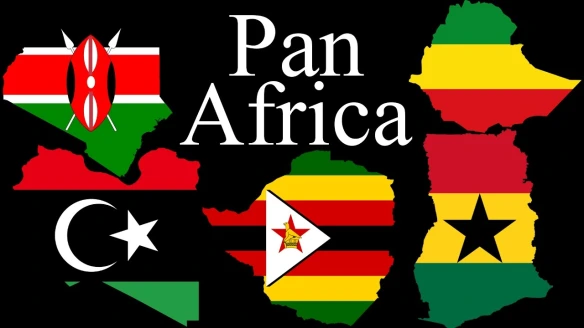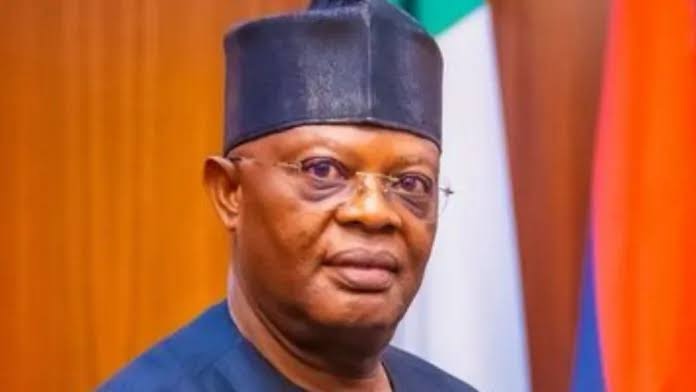Afrocentrism is a cultural and intellectual movement that emphasises the significance of African history, culture, and contributions to humanity. It represents a paradigm shift from Eurocentric perspectives that have often marginalised African contributions to global culture, science, and innovation. By embracing Afrocentrism, Africa seeks to reclaim its narrative, celebrate its rich heritage, and leverage its unique strengths for sustainable development.
Africa’s history has often been misrepresented or overlooked in mainstream narratives, which have predominantly been Eurocentric. This concept refers to a perspective that centers on European culture, history, and values, often viewing them as superior to other continents. This skewed perspective has perpetuated stereotypes and misconceptions about Africa, portraying it as a continent devoid of innovation and progress.
Afrocentrism challenges these biases by highlighting the achievements of ancient African civilisations such as the Benin Kingdom, Kingdom of Kush, the Mali Empire, and Great Zimbabwe, which made significant contributions to art, architecture, mathematics, and governance.
The cultural reclamation aspect of Afrocentrism aims to restore pride in African heritage and traditions. It emphasises the richness of African languages, music, dance, and storytelling as integral components of global cultural diversity. This cultural resurgence not only fosters a sense of identity and belonging among Africans but also opens avenues for cultural tourism and creative industries that can drive economic growth.
Central to Afrocentrism is the belief in Africa’s potential as a hub for innovation and entrepreneurship. The continent boasts a youthful population and abundant natural resources, which, if harnessed effectively, can fuel economic transformation. Initiatives promoting indigenous knowledge systems, sustainable agriculture, renewable energy, and healthcare innovations are gaining traction across Africa. For instance, the use of mobile technology for financial services (fintech) has revolutionised banking in countries like Nigeria, showcasing Africa’s capacity for innovative solutions tailored to local needs.
However, the journey towards economic empowerment faces numerous challenges. Institutional barriers, inadequate infrastructure, and limited access to capital often hinder entrepreneurial endeavours. Moreover, the global economic landscape sometimes undervalues African innovations, reinforcing perceptions of Africa as a recipient rather than a creator of knowledge and technology.
The narrative of Afrocentrism also confronts the reality of systemic challenges that persist within African societies. Corruption, political instability, and inadequate governance structures continue to undermine development efforts. These issues not only erode trust in public institutions but also stifle the potential of talented individuals like Dr. Jeremiah Abalaka (a Kogi State-born Medical practitioner), whose groundbreaking research on HIV/AIDS treatment faced scepticism and bureaucratic resistance from the then Nigerian Minister of Health, Dr. Tim Menakaya, who allegedly refused to support Dr. Abalaka’s discovery.
Dr. Abalaka’s story accentuates the importance of supportive environments for innovation. His refusal of lucrative offers from abroad in favour of serving his fatherland reflects a deep-seated commitment to African development. However, his experience also highlights the vulnerability of innovators to suppression and marginalisation within entrenched power structures. This marginalisation and suppression are also borne out of envy and jealousy by those slothful in the field and those in corridors of power.
Dr. Jeremiah Abakaka’s travails are akin to what a Zimbabwean inventor, Maxwell Chikumbutso, also experienced. He created cars, helicopters, and generators that operate on radio frequency. This inventor was visited by a team of American scientists to ascertain the authenticity of his claims, and the experiments conducted during the visit were successful. His devices featured batteries that were self-perpetuating and do not require petrol, diesel, solar power, or any hidden electricity or microwave signals. They do not need recharging, as they harness free energy frequencies from the atmosphere to continuously recharge themselves.
However, Chikumbutso allegedly survived three assassination attempts in his life owing to his inventions. The inventor was also allegedly denied patent rights because his technology seemingly defies the laws of physics. Western science struggles to categorise it or fully understand its commercial applications. This raises questions about whether racism, the darker aspects of capitalism, or a combination of both are at play.
There are other African scientists who have made groundbreaking contributions in their respective fields, showing the incredible talent and innovation coming from Africa. Some of them are: Francisco Nneka Okeke (a Nigerian physicist) known for her research on the ionosphere, which has implications for improving satellite communications and understanding climate change. Another Nigerian geneticist, Christian Happi, has made significant strides in genomics and infectious diseases research; Salim Abdool Karim, a South African has also made significant contributions to HIV/AIDS research and a host of other Africans excelling in their chosen careers and exploring means and ways of improving Africa and the world.
Education plays a pivotal role in advancing Afrocentric perspectives. By integrating African history, literature, and philosophy into school curricula, future generations can gain a more nuanced understanding of their heritage and global contributions. Initiatives promoting African languages and indigenous knowledge systems empower communities to preserve and transmit their cultural identities across generations.
Moreover, fostering partnerships between African universities and international research institutions can enhance knowledge exchange and collaborative research efforts. These collaborations are crucial for addressing complex challenges such as climate change, public health crises, and sustainable development.
Adopting an Afrocentric approach requires concerted efforts from governments, civil society, and the private sector. Policy frameworks that prioritise cultural preservation, inclusive development, and equitable access to opportunities are essential. Investments in infrastructure, healthcare, and education are foundational to unlocking Africa’s full potential and fostering an environment where innovation thrives.
Furthermore, promoting cultural diplomacy and global partnerships can amplify African voices on the international stage. Platforms that showcase African arts, music, and literature not only celebrate diversity but also challenge stereotypes and promote cross-cultural understanding.
Afrocentrism offers a transformative vision for Africa’s growth and development by celebrating its cultural heritage, promoting innovation, and confronting systemic challenges. Embracing Afrocentric perspectives empowers African communities to reclaim agency over their narratives and forge pathways to sustainable prosperity. By investing in education, supporting entrepreneurial endeavours, and fostering cultural renaissance, Africa can realise its potential as a global leader in innovation and resilience.
This discourse stresses the urgency of embracing diversity, promoting inclusivity, and nurturing environments where creativity flourishes. Through collective action and visionary leadership, Africa can chart a course towards a future where Afrocentrism not only thrives but also shapes a more equitable and prosperous world.
Odaro, a columnist, lectures in the Department of Mass Communication, Auchi Polytechnic, Auchi. He can be reached via: [email protected]


